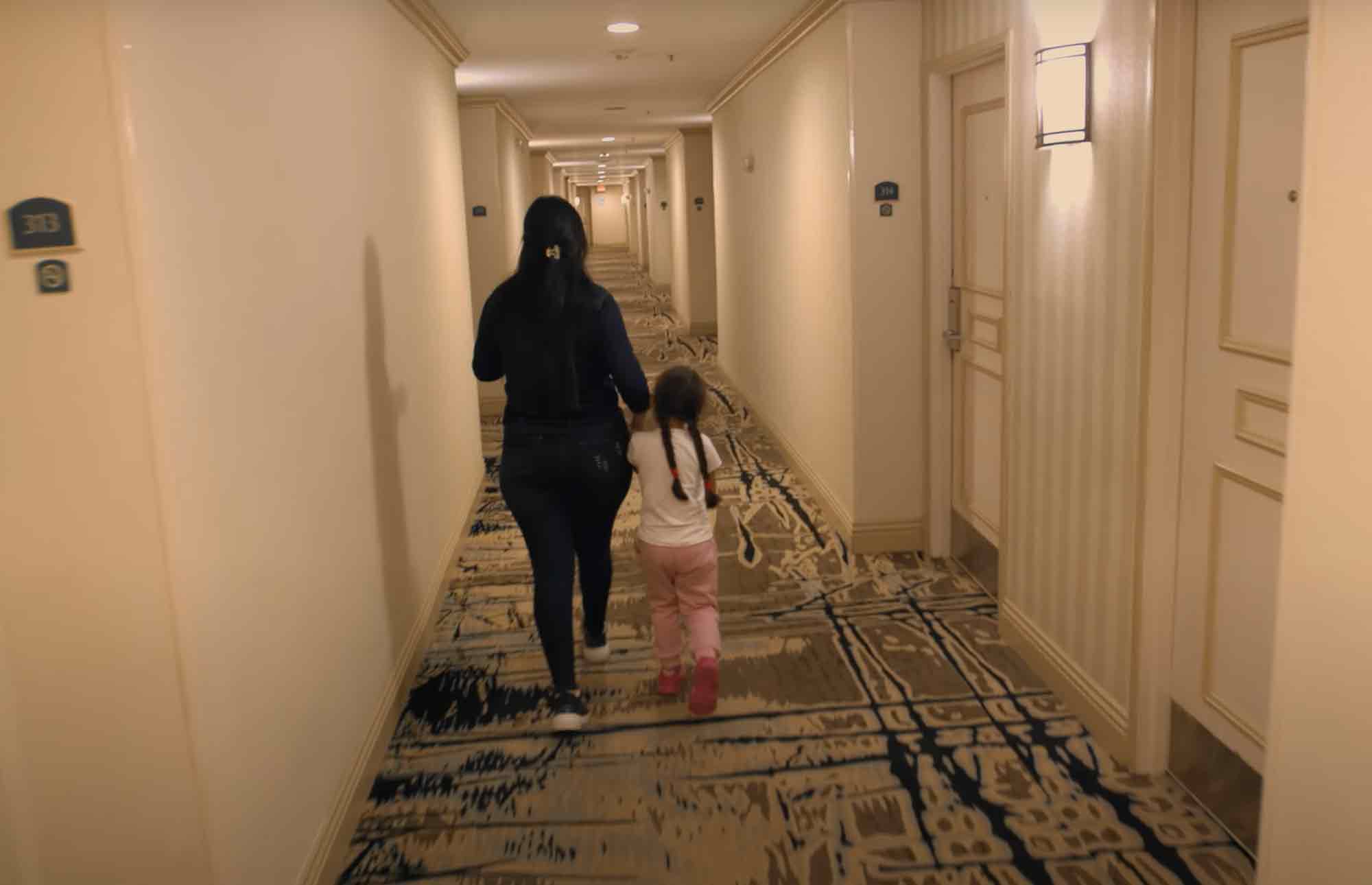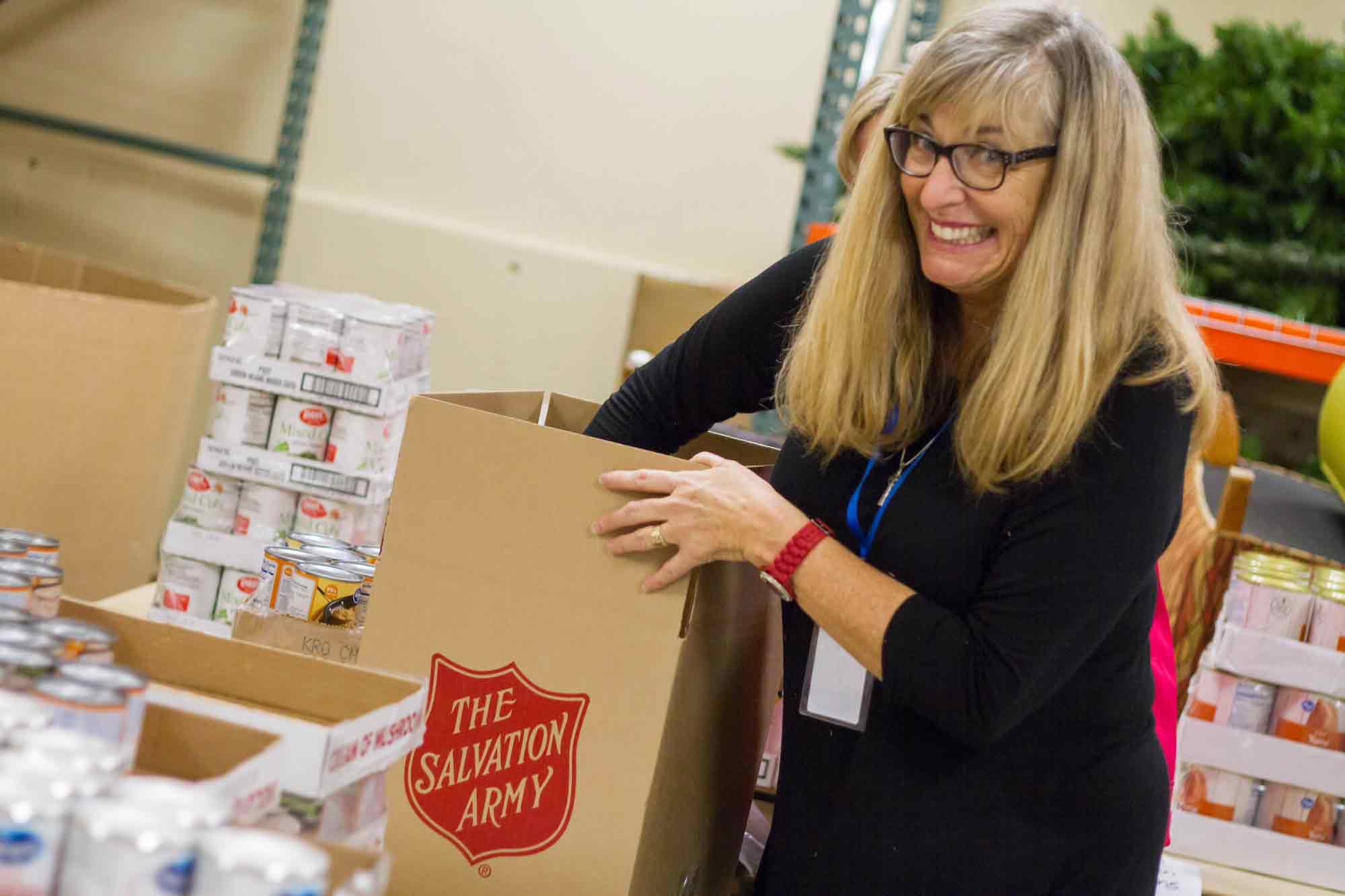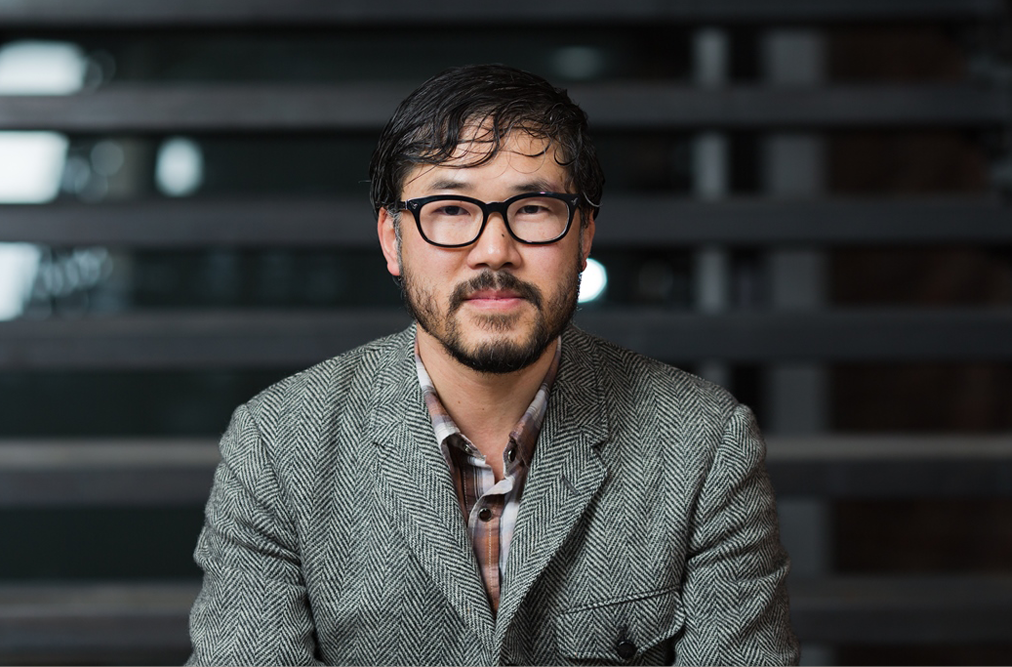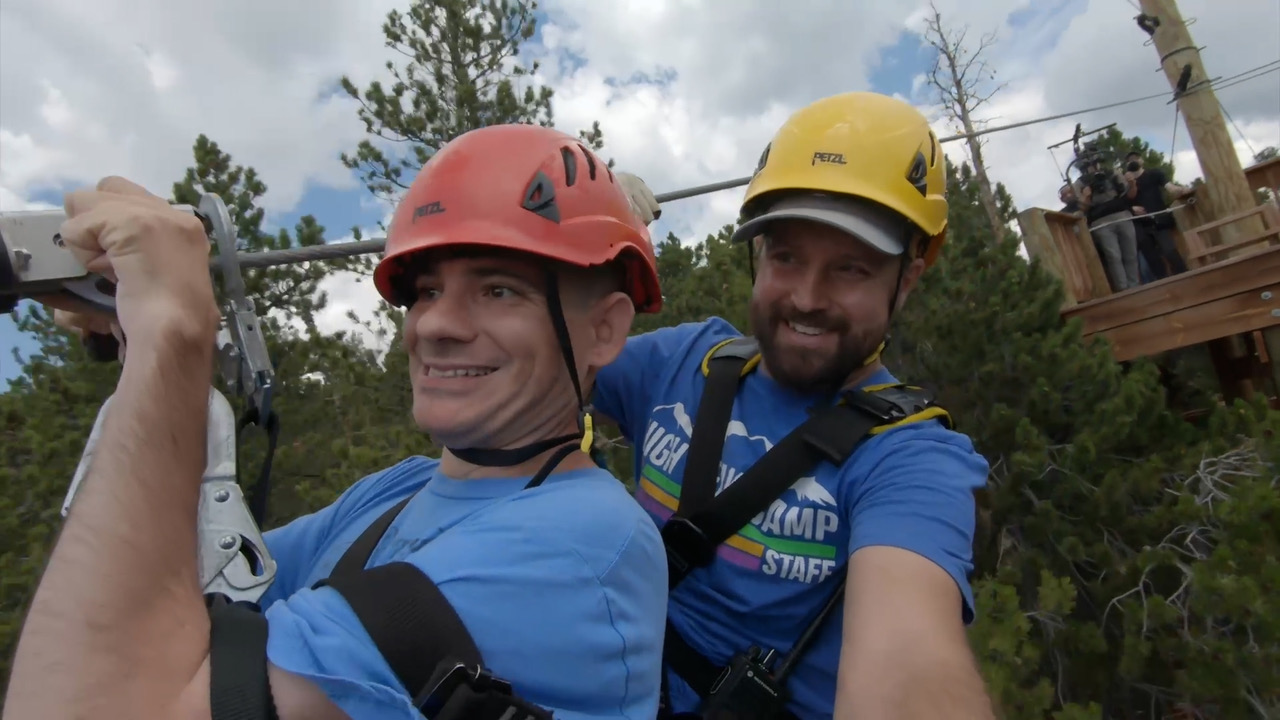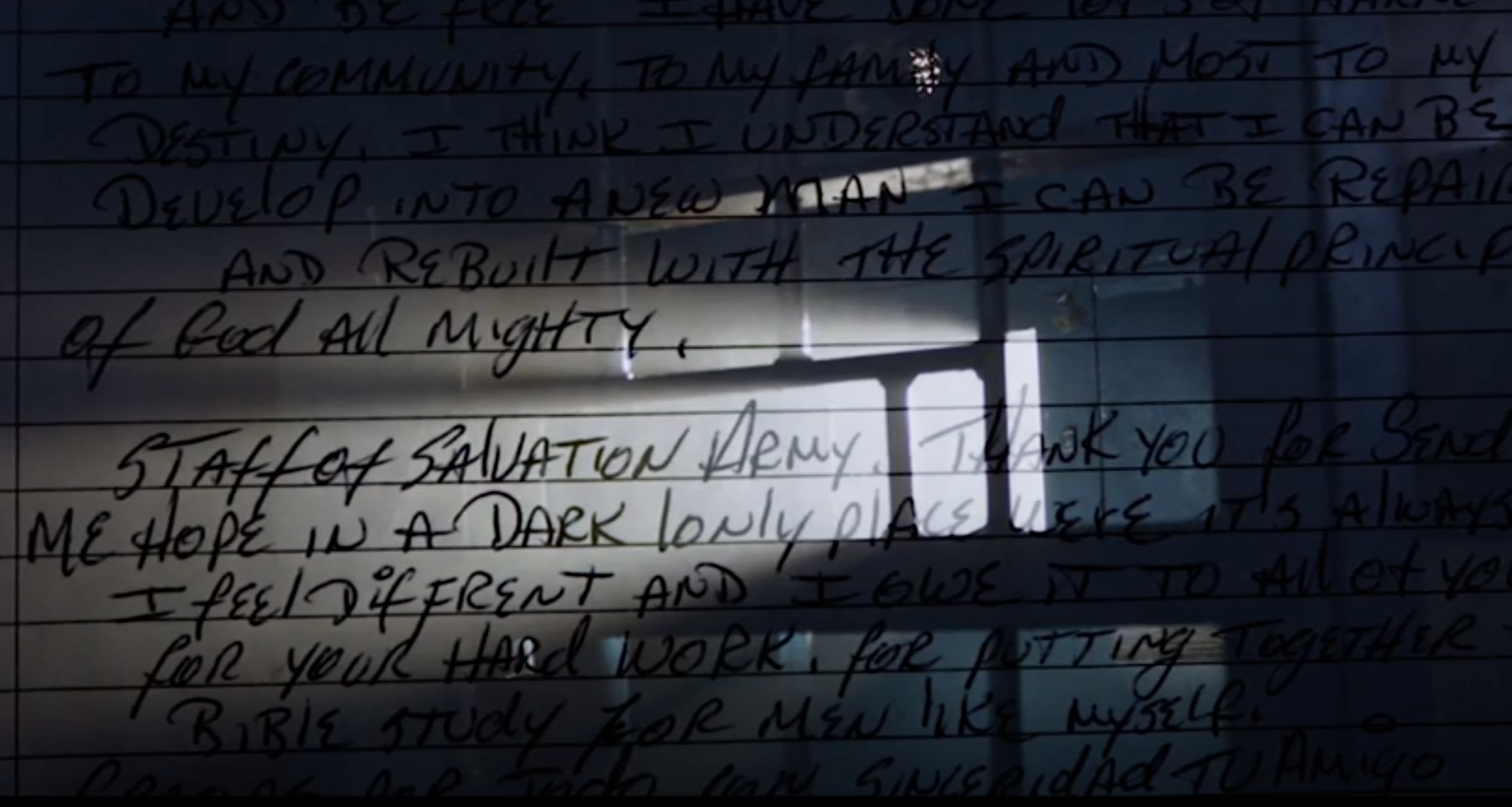Listen to this article
Listen to this article
Loading
Play
Pause
Options
0:00
-:--
1x
Playback Speed- 0.5
- 0.6
- 0.7
- 0.8
- 0.9
- 1
- 1.1
- 1.2
- 1.3
- 1.5
- 2
Audio Language
- English
- French
- German
- Italian
- Spanish
Open text
helping asylum-seeking families in california | love beyond the border. in mid-2021, riverside county, ca, enlisted the salvation army to help provide temporary logistics and lodging for asylum-seeking families as they were moved through the county on the way to their sponsors. the salvation army answered the call, mobilizing a large-scale effort to organize and house families at multiple hotels while maintaining strict covid and confidentiality protocols. we hope you enjoy this touching example of how the salvation army partners with government agencies to provide compassion and care to some of our most vulnerable populations. transcript has been edited for clarity. ***. adriana bradley, program director: we are providing shelter, food, travel assistance to all of our clients that are immigrants. they are seeking political asylum in the united states, and we are helping facilitate that process. captain david cain: we currently occupy 50 hotel rooms at one of our hotels. we have another average of 30 at this hotel, and then that’s coming and going based on our need. captain kelly cain: we have offices at three hotels. all of the family units are tested for covid. when a family tests positive for covid, they’re taken to a separate shelter where they then isolate in quarantine. for the families who test negative, the individuals are bused to different hotels. vaccination will be available for them. they have gone above and beyond to ensure that these families are safe. we deliver three meals a day, and then our case managers go around and begin the initial gathering of information to help them connect with their sponsors and make travel coordination. captain david cain: over 60% of the individuals that have currently come through our shelter have been from brazil, and speak portuguese, so we use google translate devices to continue to connect with them. adriana bradley, program director: when they come to us, they have an appointment to meet with border patrol or an ice agency. sometimes those appointments are a month, two months…sometimes, they’re a year out, depending on the state. cameron jones, client aid: half of the time, they don’t come with nothing, so it feels good to like, be able to make them smile, as well as the kids. captain kelly cain: part of the things that we gather are clothing and shoes and socks and backpacks with toys. so every family, when they arrive, they get a welcome kit with a hygiene kit. the basic stuff that we take for granted, and seeing that their two-year-old has been reusing the same diaper sometimes for days. they have, like, nothing, except the clothes on their back. captain david cain: and then we always have water bottles, and some chips, and oatmeal. we have diapers and different hygiene kits, formula, different shoes, that can just kind of accommodate their situation. we want to make sure that you have dignity, a shower, food, safety. we filled one of our storage rooms in our shelters with just a bunch of toys, and maybe just love on a kid that’s pretty scared or in a scenario where they’re just going bonkers, because they’re stuck in a hotel room. adriana bradley, program director: especially when it comes to the children…i don’t know what they experienced getting here, but i want them to know that when they’re here, there is an endless amount of snickers candy bars for them, while they’re staying here! cameron jones, client aid: it’s loving, and being able to supply somebody’s needs with the little necessities. you feel accomplished because at the end of the day, you know you did something to make someone else’s life better. we’re giving their family another chance in life, to move forward for generations to come. jose gonzalez, site manager: we have a shuttle that goes to the airport. we stay in contact, so that way we know if they arrived safely to their location, inform them about their court dates, so we’ll do follow-up calls and just let them know. captain david cain: we can meet the needs of individuals, while offering dignity, while offering safety and doing it in jesus’ name. do good:. see more videos like this in ourvideo feed. learn more about how the salvation army supports asylum seekers in this video about the seruyange family. did you know the salvation army served more than 23 million americans last year fighting hunger, homelessness, substance abuse and more—all in a fight for good? where can you help?take our quizto find your cause and learn how you can join in today. download video
Open context player
Close context player
Plays:-Audio plays count
helping asylum-seeking families in california | love beyond the border. in mid-2021, riverside county, ca, enlisted the salvation army to help provide temporary logistics and lodging for asylum-seeking families as they were moved through the county on the way to their sponsors. the salvation army answered the call, mobilizing a large-scale effort to organize and house families at multiple hotels while maintaining strict covid and confidentiality protocols. we hope you enjoy this touching example of how the salvation army partners with government agencies to provide compassion and care to some of our most vulnerable populations. transcript has been edited for clarity. ***. adriana bradley, program director: we are providing shelter, food, travel assistance to all of our clients that are immigrants. they are seeking political asylum in the united states, and we are helping facilitate that process. captain david cain: we currently occupy 50 hotel rooms at one of our hotels. we have another average of 30 at this hotel, and then that’s coming and going based on our need. captain kelly cain: we have offices at three hotels. all of the family units are tested for covid. when a family tests positive for covid, they’re taken to a separate shelter where they then isolate in quarantine. for the families who test negative, the individuals are bused to different hotels. vaccination will be available for them. they have gone above and beyond to ensure that these families are safe. we deliver three meals a day, and then our case managers go around and begin the initial gathering of information to help them connect with their sponsors and make travel coordination. captain david cain: over 60% of the individuals that have currently come through our shelter have been from brazil, and speak portuguese, so we use google translate devices to continue to connect with them. adriana bradley, program director: when they come to us, they have an appointment to meet with border patrol or an ice agency. sometimes those appointments are a month, two months…sometimes, they’re a year out, depending on the state. cameron jones, client aid: half of the time, they don’t come with nothing, so it feels good to like, be able to make them smile, as well as the kids. captain kelly cain: part of the things that we gather are clothing and shoes and socks and backpacks with toys. so every family, when they arrive, they get a welcome kit with a hygiene kit. the basic stuff that we take for granted, and seeing that their two-year-old has been reusing the same diaper sometimes for days. they have, like, nothing, except the clothes on their back. captain david cain: and then we always have water bottles, and some chips, and oatmeal. we have diapers and different hygiene kits, formula, different shoes, that can just kind of accommodate their situation. we want to make sure that you have dignity, a shower, food, safety. we filled one of our storage rooms in our shelters with just a bunch of toys, and maybe just love on a kid that’s pretty scared or in a scenario where they’re just going bonkers, because they’re stuck in a hotel room. adriana bradley, program director: especially when it comes to the children…i don’t know what they experienced getting here, but i want them to know that when they’re here, there is an endless amount of snickers candy bars for them, while they’re staying here! cameron jones, client aid: it’s loving, and being able to supply somebody’s needs with the little necessities. you feel accomplished because at the end of the day, you know you did something to make someone else’s life better. we’re giving their family another chance in life, to move forward for generations to come. jose gonzalez, site manager: we have a shuttle that goes to the airport. we stay in contact, so that way we know if they arrived safely to their location, inform them about their court dates, so we’ll do follow-up calls and just let them know. captain david cain: we can meet the needs of individuals, while offering dignity, while offering safety and doing it in jesus’ name. do good:. see more videos like this in ourvideo feed. learn more about how the salvation army supports asylum seekers in this video about the seruyange family. did you know the salvation army served more than 23 million americans last year fighting hunger, homelessness, substance abuse and more—all in a fight for good? where can you help?take our quizto find your cause and learn how you can join in today. download video
Listen to this article











